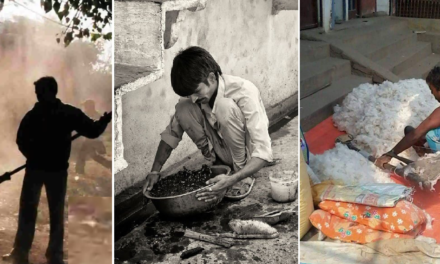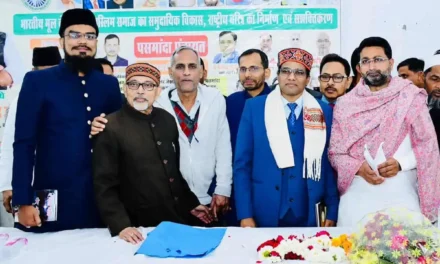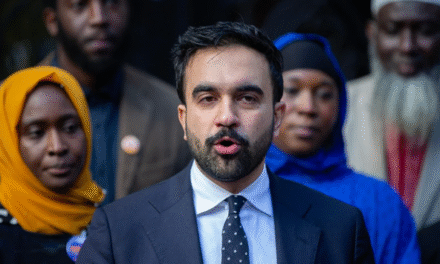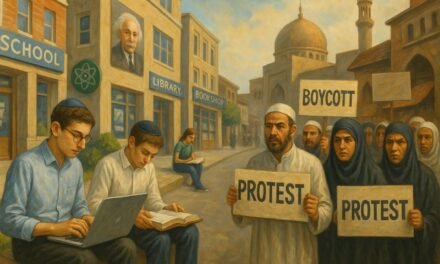~Abdullah Mansoor
The BJP is actively working to include marginalized Pasmanda Muslims in its outreach efforts, aiming to address their specific needs and concerns. Historically criticized for lacking Muslim representation, Refusing to give tickets to Muslims by the BJP, conducting aggressive Hindutva-based political campaigns in the name of nationalism, and BJP’s strategic silence on communal issues like mob lynching, bulldozers justice are issues that portray the BJP as anti-Muslim. The party is now making strategic moves to engage with this demographic, following earlier initiatives targeting Dalits and Adivasis.
In a significant step, the BJP organized the ‘Pasmanda Buddhijeevi Sammelan’ in Lucknow, Uttar Pradesh, where prominent leaders participated, signalling a shift towards inclusivity. This shift is part of a broader strategy to diversify the party’s support base and bridge the gap left by previous political neglect of Pasmanda Muslim communities. Recent changes in Muslim voting patterns, including a notable shift towards the BJP, reflect the effectiveness of these efforts in addressing social and economic concerns among Pasmanda Muslims.
The social stratification of Indian Muslims delineates them into three main groups: the ‘Ashraf’, comprising approximately 15% of the population, identified as upper castes; the ‘Ajlaf,’ denoting lower caste converts; and the ‘Arzal,’ representing the untouchables. The marginalized ‘Pasmandas’ encapsulate socially, economically, and educationally disadvantaged individuals from both ‘Ajlaf’ and ‘Arzal’ backgrounds, with the latter subgroup integrating Dalit and backward-caste Muslims. The term “Pasmanda” refers to those who have lagged behind, signifying marginalized and oppressed communities within Indian Muslim society, stemming from lower castes and economically disadvantaged groups. The Pasmanda movement emerged in response to discrimination faced by Muslims from lower castes after the Mandal Commission movement in the 1990s.
Acknowledging Historical Oppression
During national executive meetings in Delhi and Hyderabad, Prime Minister Narendra Modi urged the BJP to reach out to the fringes of minority communities. Speaking to booth-level workers in Bhopal, he acknowledged the historical oppression faced by a section of Muslims within his own religion, emphasizing the need for discussions on this issue. During national executive meetings, PM Narendra Modi addresses historical oppression within his religion, emphasizing the need for discussions on discrimination faced by Pasmamda communities.PM Modi highlighted the discrimination against various Pasmamda communities like Mochi, Bhathiara, Jogi, Madari, Julaha, Lohar, Tejaa, Laheri, Haldar, stating that these communities have faced unjust biases that generations have endured.
Muhammad Yunus, CEO of All India Pasmanda Muslim Mahaz, acknowledges the Prime Minister’s focus on Pasmanda Muslim welfare, sparking political debates. While the BJP includes them in election strategies, the opposition views it as divisive. Despite Muslims being 20% of the population, about 80% of Pasmanda Muslims are marginalized. The BJP argues for their representation in democracy, while the All India Pasmanda Muslim Mahaz supports the PM’s decisions and urges inclusive policies for Pasmanda communities. However, Azeem Ahmed from the Delhi School of Economics sees the BJP’s outreach positively, establishing Pasmanda discourse in electoral discussions. Yet, Pasmanda Muslims remain sceptical of voting for the BJP due to its polarization politics. Nonetheless, there may be a shift in Pasmanda votes towards the BJP due to its outreach and welfare schemes.
BJP’s Action Plan: Outreach and Inclusivity
Pasmanda Muslims constitute over 80% of the Indian Muslim population and face discrimination in various social aspects, contrary to Islamic principles. The BJP, under Prime Minister Modi, became the first national party to address social justice within the Muslim community. BJP President JP Nadda initiated extensive outreach programs in Uttar Pradesh, focusing on honoring and providing affection to Pasmanda Muslims. This approach resonates with the community, as about 80% of BJP candidates in local elections come from marginalized Muslim backgrounds. Adnan Qamar, State President of Telangana, AIPMM, criticizes secular parties for neglecting Pasmanda concerns, contrasting with BJP’s appointments of Pasmanda individuals to important positions. In the 2023 Uttar Pradesh urban local body elections, 395 Muslim candidates were fielded by the BJP, indicating a shift in their engagement with Pasmanda Muslims. This shift reflects the BJP’s commitment to addressing social and economic challenges faced by this subgroup, contrasting with the traditional perspectives of other political parties. Parvez Hanif, President of All India Pasmanda Muslim Mahaz, applauds Modi for initiating this historic debate and focusing on social justice and rights, challenging secular parties’ narratives. This shift signifies a broader movement towards addressing Pasmanda concerns beyond mere rhetoric, with increasing awareness against religious conspiracies.

The BJP’s efforts to address the concerns of Pasmanda Muslims through governance initiatives underscore its commitment to tackling the socio-economic challenges faced by this demographic. Columnist Amana Begam Ansari highlights the significance of political recognition for Pasmanda Muslims, emphasizing its departure from historical neglect. As a Pasmanda Muslim woman, being addressed as a significant voting bloc by a political party carries profound implications. This recognition marks a significant departure in the political landscape of independent India. But former Rajya Sabha MP Ali Anwar criticized Prime Minister Narendra Modi’s apparent concern for Pasmanda Muslims as insincere, suggesting opposition parties should also use the term “Pasmanda” to counter the BJP’s rhetoric. He highlighted issues like mob lynching and government actions disproportionately affecting Pasmanda communities. This critique reflects a broader trend where purportedly secular liberal political parties have historically garnered the support of marginalized Pasmanda populations by promising security.
Pasmanda activist Dr Faiyaz Ahmad Fyzie acknowledged the role of ruling parties in exploiting communal polarization, with vulnerable communities bearing the brunt. He emphasized the importance of political empowerment in mitigating such incidents, noting the BJP’s unique stance in addressing Pasmanda discrimination. As society gains political strength, incidents of communal polarization may decrease, highlighting the need for prioritizing political empowerment. In light of these perspectives, voting for the BJP in the upcoming 2024 Lok Sabha elections could significantly impact the future of approximately 150 million Pasmanda Muslims. There is observed increasing inclination of the Pasmanda community towards the BJP, suggesting potential consequences for other political parties if Pasmanda issues continue to be neglected.
In Assam, several initiatives and laws have been enacted that have been portrayed as anti-Muslim. Ohi Uddin Ahmad from Assam stated that controversy has surrounded the BJP government in Assam since 2016, particularly regarding actions such as the closure of government-run Madrassas and eviction drives. Despite these controversies, many government programs have received praise, leading to a positive perception among liberal Muslims. However, the state BJP unit exhibits less interest in Pasmanda voters compared to the national party. Nevertheless, despite these disparities, Pasmanda Muslims have consistently supported the BJP and continue to do so. Recently, a large gathering expressed support for CM Himanta Biswa Sharma. As the BJP endeavours to engage all segments of Muslim society, its support among Muslims in Assam is anticipated to increase. Despite encountering obstacles such as the removal of reservation quotas in states like Karnataka, the BJP is perceived as capable of addressing the developmental needs of Pasmanda Muslims. The nomination of Gulam Ali Khattana, a Gujjar Muslim leader from Jammu and Kashmir, to the Rajya Sabha, adds significance to the party’s outreach efforts, particularly in constituencies with sizable Gujjar Muslim populations like Amethi and Rae Bareli.
Pasmanda Voting Trends: Assessing 2024 Lok Sabha
The trend of using religious and emotional appeals to win votes has marginalized Pasmanda Muslims. Their livelihood and representation issues are sidelined in mainstream discourse, overshadowed by secular-communal debates. Additionally, Ashraf leadership dominance perpetuates the narrative of equality within the Muslim community, ignoring the specific challenges faced by Pasmanda Muslims. To address this, political strategies must move beyond rhetoric and focus on substantive policies for equitable representation and upliftment of marginalized communities.
Questions are being raised about the representation of Pasmanda Muslims in the 2019 Lok Sabha elections. As per one analysis, of the 7,500 elected representatives from the first to the fourteenth Lok Sabha, 400 were Muslims — of which 340 were from the Ashraf (upper caste) community. Only 60 Muslims from the Pasmanda background have been elected in fourteen Lok Sabhas. As per the 2011 Census, Muslims constitute about 14.2 per cent of India’s population. This means that Ashrafs would have a 2.1 per cent share of the country’s population. But their representation in the Lok Sabha was around 4.5 per cent. On the other hand, Pasmandas’ share in the population was around 11.4 per cent, and still, they had a mere 0.8 per cent representation in Parliament.(KHALID ANIS ANSARI, The Print, 13 May, 2019)
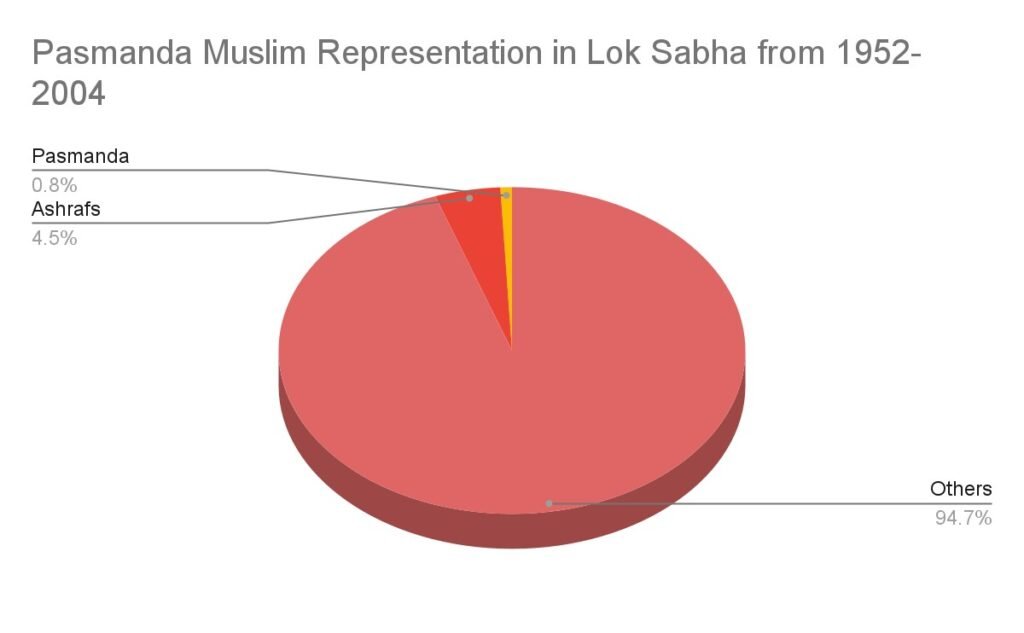
Muslim politics is identity politics that centres around religion, while the Pasmanda movements focus on livelihood, representation, and social justice. When Muslims engage in movements focused solely on social justice, it is considered that they have completely set aside their Muslim identity. It is essential to understand that Muslims are not a homogeneous community, and Muslim voting is not solely based on religious issues, nor do Muslims only vote for Muslims. In past elections, Pasmanda Muslims voted for all political parties, including the BJP. However, at the national level, non-BJP parties and regional coalitions became the first choice of Muslim voters. Still, in some major states like Rajasthan, Madhya Pradesh, and Gujarat, the BJP’s vote among Muslims increased significantly. This proves that the Muslim vote, especially Pasmanda votes, is not a vote bank for any one party.
This is the reason why PM Modi’s emphasis on governance and acknowledgement of the backwardness among Pasmanda Muslims highlights the BJP’s commitment to addressing social and economic challenges. The party’s inclusive approach, as demonstrated through PM Modi’s “Sabka Saath, Sabka Vikas, Sabka Vishwas, Sabka Prayas” model, portrays the BJP as capable of benefiting marginalized Muslims through welfare schemes. Key appointments of Pasmanda Muslims to positions such as ministers in the Alpasankhyak Kalyan and Wakf departments, the chairman of the Uttar Pradesh Alpasankhyak Commission, and others indicate a genuine effort to address Pasmanda concerns. Dr. Aqueel Akhtar, a professor at MLNCE, DU, praises Prime Minister Modi and the BJP for their outreach program with Pasmanda Muslims, highlighting the unprecedented attention given to improving their conditions and empowerment. He notes the beneficial impact of BJP policies, particularly in education, on marginalized communities, including Pasmanda Muslims, expressing confidence in their support for the BJP in the 2024 elections.
The BJP’s engagement with Pasmanda Muslims reflects a shifting landscape in Indian Muslim politics, emphasizing socio-economic concerns alongside religious identity. This nuanced approach acknowledges the diversity within the Muslim community, signalling a departure from traditional religious-centric politics. However, the BJP’s outreach efforts may unsettle other parties like the Samajwadi Party and Bahujan Samajwadi Party, potentially affecting their long-term electoral prospects.
Looking ahead to the 2024 Lok Sabha elections, the mapping of Muslim voting behaviour indicates a significant shift. state elections in Uttar Pradesh in 2012, a small percentage of Muslim voters reported that they voted for the BJP candidate. By 2017,12.6% of general Muslims and 8% of Pasmanda Muslims reported supporting the BJP. Interestingly, by the 2022 state elections, BJP support among general Muslims fell to 9.8%, while support among Pasmanda Muslims increased to 9.1%. While vote choice in state elections does not automatically translate to behaviour in national elections, the BJP’s recent inroads with the Pasmanda community — along with targeted 2024 election outreach — suggests that increased Pasmanda support for the BJP is possible. (FEYAAD ALLIE, Mapping Muslim voting behaviour, HT, 12/02/2024)
The BJP’s approach to engaging with Pasmanda Muslims needs to find a balance between embracing new ideas and sticking to their core beliefs. It’s important to make sure Pasmanda Muslim communities are safe, especially since they often feel vulnerable under Hindu nationalism. Tackling inequalities within different societal groups is key to upholding constitutional rights and moving the nation forward together. While the BJP’s efforts to connect with Pasmanda Muslims offer a chance for dialogue and inclusion, real representation and acceptance remain ongoing challenges. The potential impact on other political parties highlights the need for balance in Indian politics. If the BJP can assure strong protection and representation for Pasmanda Muslims, it could change the dynamics of Indian Muslim politics. If the Modi government includes Pasmanda Muslims in the Prevention of Atrocities Act, it could bring an end to the politics of secular parties that seek their votes in the name of security. The BJP government should carefully consider this issue as they navigate the complexities of Indian politics.
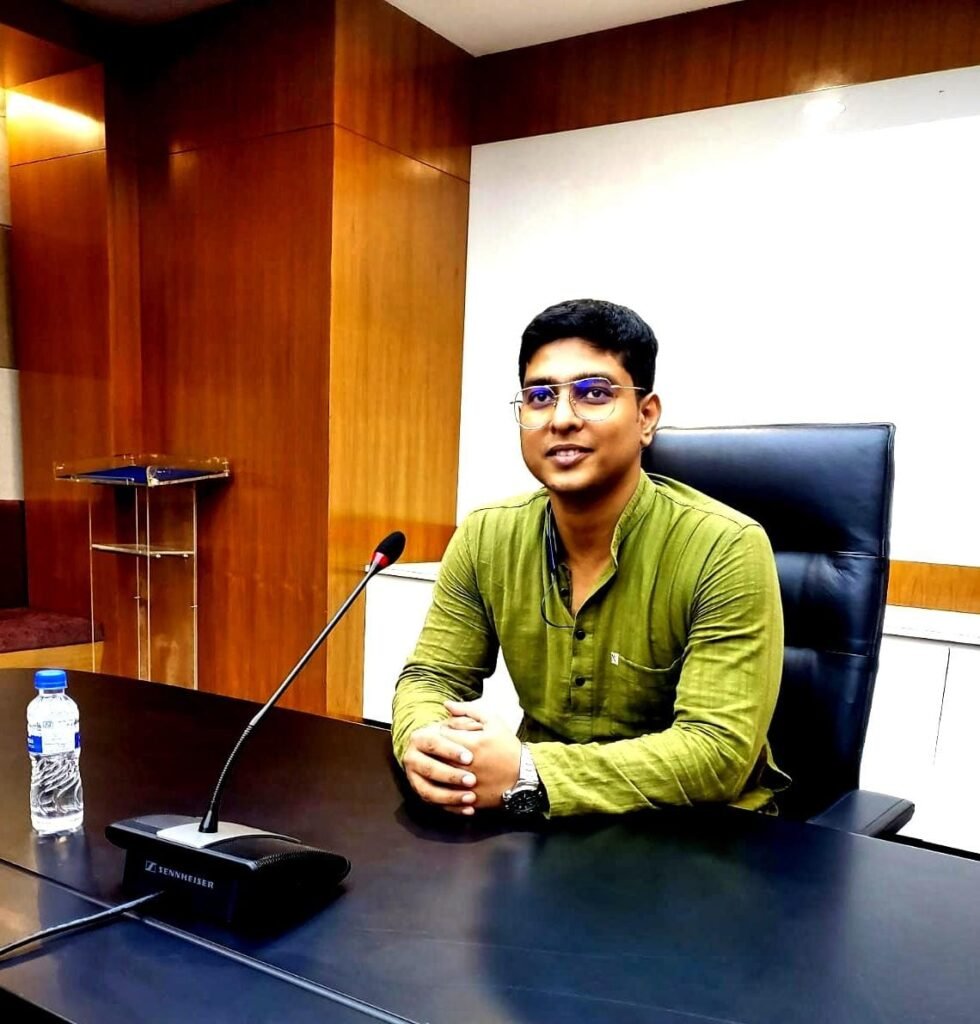
The writer is a Pasmanda activist and also manages a YouTube channel named PASMANDA DEMOcracy.


